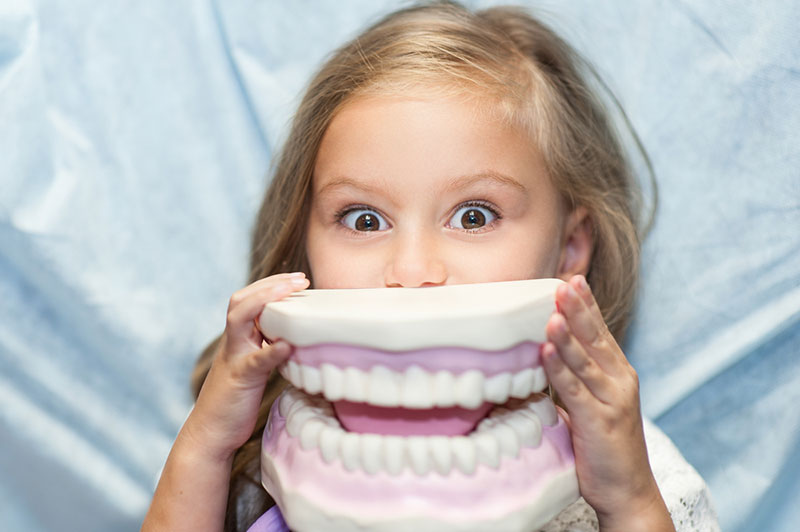I am writing for a second opinion on what my daughter’s pediatric dentist recommended. It’s hard to decide if a 5 year old should get all the treatment that is being recommended. She has cavities in 3 of her back molars and the dentist wants to fill them and put sealants over all of her molars. If these are baby teeth, should we really be that concerned? – Sabreena
Sabreena,
Primary back molars aren’t replaced with permanent teeth until about 12 years of age. Although one of our pediatric dentists would need to examine your daughter’s teeth to give precise treatment recommendations, it sounds as if your daughter’s dentist is genuinely concerned about her oral health. If you decide to leave your daughter’s cavities untreated, keep in mind the following factors.
Why a Pediatric Dentist Might Recommend Treating Primary Teeth
- Untreated cavities will continue to spread.
- If decay takes over her teeth, they can become infected and require treatment from an endodontist, or be lost prematurely.
- Chewing without back molars will become difficult.
- Absence of the molars may cause other teeth to shift.
- Missing primary molars affect how permanent teeth grown in. This can create a need for orthodontic treatment as your daughter matures.
- Failure to treat the teeth that have cavities can result in more costly dental treatment in the future.
- Your daughter’s pediatric dentist is likely recommending sealants to protect your daughter’s teeth from bacteria and decay.
What Is Causing the Problem?
In addition to filling the cavities, it is helpful to consider the cause of the cavities. Some possible causes of frequent cavities include:
Nutrition habits
- Inadequate or improper brushing and flossing
- Frequent snacking
- Frequently eating sugary snacks or drinking soda can accelerate tooth decay.
Limiting sugary snacks and drinks can improve oral health.
Medical conditions
If none of these nutrition issues exist, your dentist may more closely examine your daughter’s teeth and determine if a medical issue or any prescription medication your child may be taking is promoting cavities.
Fluoride mouth rinse or prescription fluoride toothpaste will help protect her teeth. Filling the cavities in your daughter’s teeth and protecting her molar teeth with sealants makes good sense. It can preserve your daughter’s teeth, help primary teeth grow correctly, and help her maintain good oral health.
This post is sponsored by Dr. Anthony LaVacca of Naperville Dental Specialists.

































